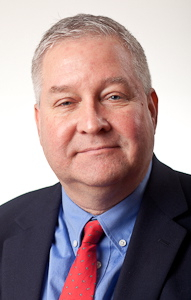Journalism project on water quality wins national grant
An ambitious journalism project with UW–Madison School of Journalism and Mass Communication students collaborating with each other and partner organizations to report on the quality and supply of Wisconsin water has earned a $35,000 grant through the Online News Association.
The project, titled The Confluence: A Live News Experiment Covering Wisconsin Waters, connects journalism courses, the Wisconsin Center for Investigative Journalism, Madison Commons, state newspapers, and public and commercial broadcast outlets, as well as volunteer citizen water monitoring.

Andy Hall
Andy Hall, executive director of the Wisconsin Center for Investigative Journalism, says the project builds on WCIJ’s ongoing Water Watch Wisconsin project. He said students, faculty and professional journalists, including reporters from Wisconsin Public Radio and Wisconsin Public Television, will experiment with new ways of educating students while informing the public of critical issues facing communities.
“We’re hoping that this will increase the impact of the journalism and will benefit students, as well as residents across the state,” Hall says.
By expanding on WCIJ’s distribution system — more than 230 news organizations have picked up its coverage — and existing collaborations with newsrooms statewide, this project will bring student journalism directly to local communities. The project will use a community engagement model developed by Madison Commons in both reporting and distributing stories. The goal is to use student and industry reporting as the foundation for social media, events and online discussion as a forum for exploring water quality and supply, and for seeking potential solutions to problems.

Katy Culver
The project will be led by Katy Culver, assistant professor in the School of Journalism and Mass Communication and associate director of the Center for Journalism Ethics. Six or seven course sections, including intermediate reporting, magazines, investigative reporting, in-depth reporting, and video news will cover stories in collaboration with WCIJ and other media outlets.
Media professionals will work with students on reporting and writing while students will contribute to more expansive multimedia production. The project also hopes to engage and launch events with the Wisconsin Academy of Sciences, Arts and Letters; UW Extension and its network of volunteer citizen water quality monitors; and the UW Sea Grant Institute.
Culver says the collaboration and experimentation involved in the project “propels journalism education forward and helps us serve our communities.
“Water supply and quality are critical issues in Wisconsin, and this collaboration between our students and WCIJ will fill a hole in coverage of these concerns,” Culver says. “I’m grateful to these foundations for stimulating this kind of experimentation. In budget-strained times, it can be tough to be bold and innovate. This will enable real progress for our students and define new paths for us to move our courses forward.”
Professor Greg Downey, director of the School of Journalism and Mass Communication, said the project is the Wisconsin Idea in action.
“This is just one of the many benefits UW has reaped from our school’s innovative collaboration with the nonprofit, nonpartisan Wisconsin Center for Investigative Journalism,” Downey says. “The power of our combined expertise brought this crucial funding to Wisconsin, and to our students. Now that funding will help us to better serve the public interest. That’s the Wisconsin Idea in action.”
The project will launch this summer, with the first events and published stories expected to follow this fall. The team will document their experience here.

